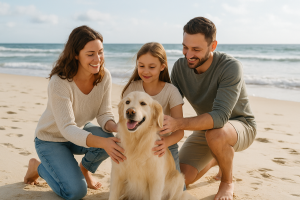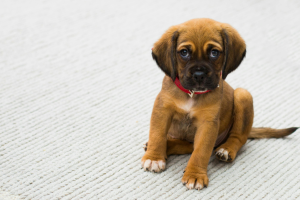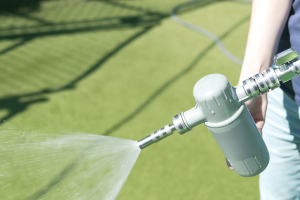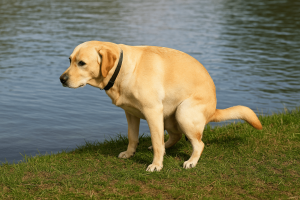As a responsible dog owner, you understand the importance of feeding your pet quality food, providing regular exercise, and scheduling veterinary checkups. However, one crucial aspect of dog health that many pet owners overlook is the immediate removal of dog poop from their yard and living spaces. Regular poop scooping isn’t just about maintaining a clean environment—it’s a fundamental practice that directly impacts your dog’s health, your family’s well being, and your community’s safety.
The Hidden Health Risks of Accumulated Dog Poop
Dog poop contain numerous pathogens, parasites, and bacteria that pose serious health risks when left unattended. Unlike fertilizer, dog poop doesn’t break down safely in your yard. Instead, it becomes a breeding ground for dangerous microorganisms that can persist in soil and water for months or even years.
When dog poop accumulates in your yard, it creates an environment where harmful bacteria multiply rapidly. The longer poop remains on the ground, the more concentrated these pathogens become, increasing the likelihood of infection for your dog, your family, and neighboring pets.
Parasites: The Invisible Threat in Dog Poop
One of the most significant health concerns associated with uncollected dog poop is parasite transmission. Dog feces commonly contain eggs from various intestinal parasites, including roundworms, hookworms, whipworms, and tapeworms. These parasites can survive in the environment for extended periods, remaining infectious long after the visible poop has decomposed.
Roundworms are particularly concerning because their eggs can remain viable in soil for up to four years. Dogs can become reinfected by sniffing or licking contaminated areas, and humans can accidentally ingest these microscopic eggs through contaminated soil or water. In humans, roundworm infections can cause serious health complications, including organ damage and vision problems.
Hookworms present another serious threat, as their larvae can penetrate skin upon contact. Dogs walking through contaminated areas can develop hookworm infections through their paw pads, while humans can contract cutaneous larva migrans by walking barefoot on infected soil.
Giardia cysts in dog poop can contaminate water sources and soil, causing severe gastrointestinal illness in both dogs and humans. These microscopic parasites are particularly resilient and can survive freezing temperatures and standard chlorine treatments.
Dangerous Bacteria Lurking in Dog Poop
Dog poop harbors numerous pathogenic bacteria that pose serious health risks. Salmonella bacteria can survive in dog poop for months, contaminating soil and potentially infecting anyone who comes into contact with the contaminated area. This bacteria causes severe food poisoning symptoms and can be particularly dangerous for young children, elderly individuals, and immunocompromised people.
Campylobacter is another common bacterial pathogen found in dog poop that causes gastroenteritis in humans and animals. This bacteria can survive in the environment for several weeks and is easily transmitted through contaminated soil or water.
E. coli strains present in dog feces can cause severe gastrointestinal illness, with some strains producing dangerous toxins that can lead to kidney failure. Children are particularly susceptible to E. coli infections due to their developing immune systems and tendency to play in areas where contaminated soil might be present.
Clostridium perfringens spores in dog poop can persist in soil indefinitely, creating long-term contamination risks. This bacteria can cause severe gastrointestinal illness and is particularly resistant to environmental stressors.
How Disease Spreads from Uncollected Dog Poop
The transmission pathways for diseases from dog poop are numerous and often surprising. Dogs naturally investigate their environment through sniffing and licking, making them highly susceptible to reinfection from contaminated areas in their own yard. Even well-trained dogs may accidentally step in old poop and then groom their paws, introducing pathogens directly into their system.
Rainwater runoff from areas with accumulated dog poop can spread contamination across your entire property and into local water systems. This contaminated runoff can affect vegetable gardens, children’s play areas, and neighboring properties. The pathogens in dog poop can leach into groundwater, potentially contaminating wells and local water supplies.
Wind can also transport dried particles of dog poop, spreading bacteria and parasite eggs to areas far from the original poop location. This airborne transmission can contaminate outdoor furniture, children’s toys, and even outdoor food preparation areas.
The Pest Problem: Why Accumulated Poop Attracts Unwanted Visitors
Uncollected dog poop creates an attractive environment for various pests that can compound health risks and create additional problems for homeowners. Flies are among the first pests attracted to dog poop, and they serve as mechanical vectors for disease transmission. These insects land on contaminated poop and then transfer pathogens to food, surfaces, and other areas throughout your property.
Rodents are also attracted to dog poop, particularly if your dog’s diet includes undigested food particles. Rats and mice can spread additional diseases while contaminating areas with their own waste and urine. These rodents may also chew through outdoor storage containers and potentially access your home.
Cockroaches thrive in environments with organic waste and can multiply rapidly in areas with accumulated dog feces. These insects are notorious disease vectors and can be extremely difficult to eliminate once established.
Raccoons, opossums, and other wildlife may be attracted to your property by the scent of dog poop, potentially bringing additional parasites and diseases. These animals can also become aggressive when protecting a food source and may pose direct safety risks to your family and pets.
Environmental and Community Health Impact
The environmental impact of uncollected dog poop extends far beyond individual properties. When dog poop washes into storm drains, it contributes to water pollution in local streams, rivers, and lakes. The high nitrogen and phosphorus content in dog poop can trigger harmful algae blooms that deplete oxygen levels in water bodies, harming aquatic ecosystems.
Dog poop contains significantly more bacteria than agricultural animal waste, making it a serious environmental pollutant. A single gram of dog poop can contain up to 23 million fecal coliform bacteria, contaminating large volumes of water when washed into local waterways.
Professional Dog Poop Removal Services: A Smart Investment
For many busy dog owners, maintaining a consistent poop scooping schedule can be challenging. Work commitments, travel, physical limitations, or simply having multiple dogs can make daily poop removal difficult to maintain. This is where Dog Scoopers services become invaluable.
Dog Scoopers offers comprehensive yard dog poop removal service weekly or bi-weekly to ensure your dog’s environment remains consistently clean and healthy.
The investment in professional services often pays for itself through reduced veterinary bills, as maintaining a pathogen-free environment significantly decreases your dog’s risk of parasitic infections and bacterial diseases. Dog Scoopers uses professional-grade equipment and follows strict sanitation protocols that most homeowners cannot replicate with standard household tools.
Best Practices for Safe Poop Scooping
Whether you choose to handle poop removal yourself or hire Dog Scoopers, implementing a regular cleaning routine is essential for maintaining your dog’s health and environmental safety. Daily poop removal is ideal, but poop should never remain in your yard for more than 48 hours. Use proper tools such as pooper scoopers or biodegradable bags to avoid direct contact with poop.
Always wash your hands thoroughly after handling dog poop, even when using protective equipment. Dispose of collected poop in regular trash collection rather than composting, as home composting systems don’t reach temperatures high enough to kill pathogens.
Consider professional pooper scooper services like Dog Scoopers if you’re unable to maintain a regular cleaning schedule. Dog Scoopers provides reliable, weekly poop removal services that ensure consistent cleaning and proper disposal methods, giving busy pet owners peace of mind.
Protecting Your Dog’s Long-term Health
Regular poop scooping is a simple yet crucial investment in your dog’s long-term health and happiness. By eliminating contamination sources from your dog’s environment, you significantly reduce their risk of parasitic infections, bacterial diseases, and related health complications. This preventive approach can save thousands of dollars in veterinary bills while ensuring your dog enjoys a healthier, more comfortable life.
A clean environment also encourages healthy behaviors in your dog, as they’re less likely to develop coprophagia (eating feces) when poop is promptly removed. This behavioral issue can lead to serious health problems and is much easier to prevent than to treat.
Conclusion
Regular poop scooping represents one of the most important yet underappreciated aspects of responsible dog ownership. The health risks associated with accumulated dog poop are serious and far-reaching, affecting not only your dog but your entire family and community. Whether you choose to handle poop removal yourself or partner with a professional service like Dog Scoopers, implementing a consistent poop removal routine creates a safer environment for everyone while protecting your dog from preventable diseases and infections.
The small investment of time—or the reasonable cost of professional services—required for regular poop removal pays enormous dividends in terms of health protection, environmental responsibility, and community consideration. Dog Scoopers makes this essential task convenient and reliable, allowing busy pet owners to ensure their dog’s environment remains clean and healthy without the hassle of daily maintenance.
Make regular poop removal a non-negotiable part of your pet care routine—your dog’s health depends on it.







